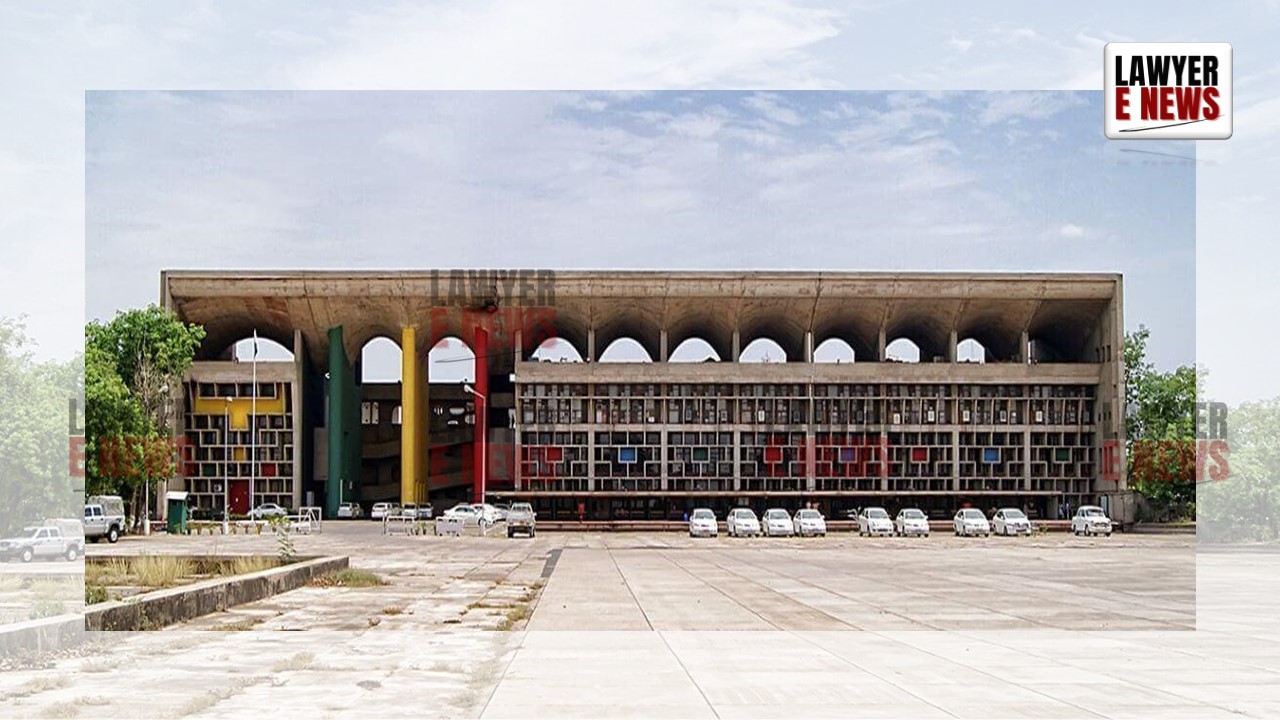-
by Admin
15 February 2026 5:35 AM



Age Cannot Outweigh the Contribution of an Ex-Serviceman: Rule 15(c) of Punjab Land Revenue Rules Prevails - Punjab & Haryana High Court dismissed an appeal challenging the appointment of a retired Subedar as Lambardar (Scheduled Caste) for Village Kadhalian, District Hoshiarpur. The judgment upheld the Collector’s discretion under Rule 15(c) of the Punjab Land Revenue Rules, which prioritizes services rendered to the State over factors like age or marginal educational differences.
The appellant, Pardip Singh, argued that his youth (29 years), higher education (12th grade), and hereditary claim should have made him the more suitable candidate. However, the High Court rejected these arguments, emphasizing the importance of service to the State and the Collector’s discretion in making the appointment.
The dispute centered around the appointment of a Lambardar for the Scheduled Caste category in Village Kadhalian. The Collector appointed Harmesh Singh, a 51-year-old retired Subedar, based on his service in the Indian Army, land ownership, and recommendations from local revenue officials.
The appellant, Pardip Singh, challenged this decision before the Financial Commissioner, who set aside the appointment. However, the Single Judge of the High Court overturned the Financial Commissioner’s order, restoring the Collector’s original decision. The appellant then filed the present appeal before the Division Bench.
Does the Collector’s preference for an ex-serviceman under Rule 15(c) outweigh the appellant’s age and educational qualifications?
What is the scope of judicial review in cases involving the Collector’s discretion in appointments of Lambardars?
Should hereditary claims to the Lambardari be considered valid under Article 14 of the Constitution?
The High Court upheld the Collector’s preference for the respondent, a retired Subedar, citing Rule 15(c), which requires consideration of services rendered to the State or nation. The Court clarified that such service is a significant factor and cannot be outweighed by marginal advantages in age or education.
The Court held: “Ex-servicemen have to be given the benefit of their service to the nation. The age factor cannot be held to be a disadvantage for an ex-serviceman under Rule 15(c).”
The appellant argued that his 12th-grade education should give him an advantage over the respondent, who was educated up to the 10th grade. The Court dismissed this argument, stating that the difference was insignificant when weighed against the respondent’s extensive service record.
The judgment noted: “The marginal difference in educational qualifications does not make the appellant a better candidate, especially when the respondent has demonstrated his competence through years of service in the Army.”
The Court emphasized the limited scope of judicial review in appointments made by the Collector, who personally interacted with the candidates and considered their merits. The Financial Commissioner’s decision to overturn the Collector’s appointment was deemed unwarranted and an overreach.
The judgment stated: “The Financial Commissioner substituted his own opinion for that of the Collector, who had exercised his discretion appropriately after considering all relevant factors. Judicial interference is unwarranted in the absence of perversity or illegality.”
The appellant’s claim of hereditary entitlement as the son of the previous Lambardar was categorically rejected. The Court relied on established precedents that hereditary claims violate Article 14 of the Constitution and cannot form the basis for appointments.
The Court observed: “Hereditary claims to the Lambardari are unconstitutional as they violate the principle of equality under Article 14. The Collector rightly excluded this factor from consideration.”
The Court noted that the respondent owned land in the village, whereas the appellant did not. It found the Collector’s consideration of this factor valid, as land ownership reflects a stronger connection to the village and its welfare.
The judgment added: “The respondent’s land ownership further strengthens his candidature as someone deeply rooted in the community, making him a suitable choice for Lambardar.”
The Division Bench dismissed the appeal, upholding the appointment of Harmesh Singh as Lambardar. The Court found the Collector’s decision well-reasoned, based on valid factors such as service to the State, land ownership, and overall suitability for the role.
The judgment concluded: “The Collector’s discretion was exercised appropriately after personal interaction with the candidates and a thorough evaluation of their merits. Judicial interference is unwarranted, and the learned Single Judge rightly restored the Collector’s decision.”
This ruling reinforces the principle that service to the State is a critical factor in public appointments under Rule 15(c) of the Punjab Land Revenue Rules. It also underscores the limited scope of judicial review in such appointments, preserving the autonomy of administrative authorities like the Collector.
By rejecting hereditary claims, the Court affirmed the constitutional principle of equality under Article 14, ensuring that public roles like Lambardar are awarded based on merit and suitability rather than lineage.
Date of Decision: December 20, 2024
